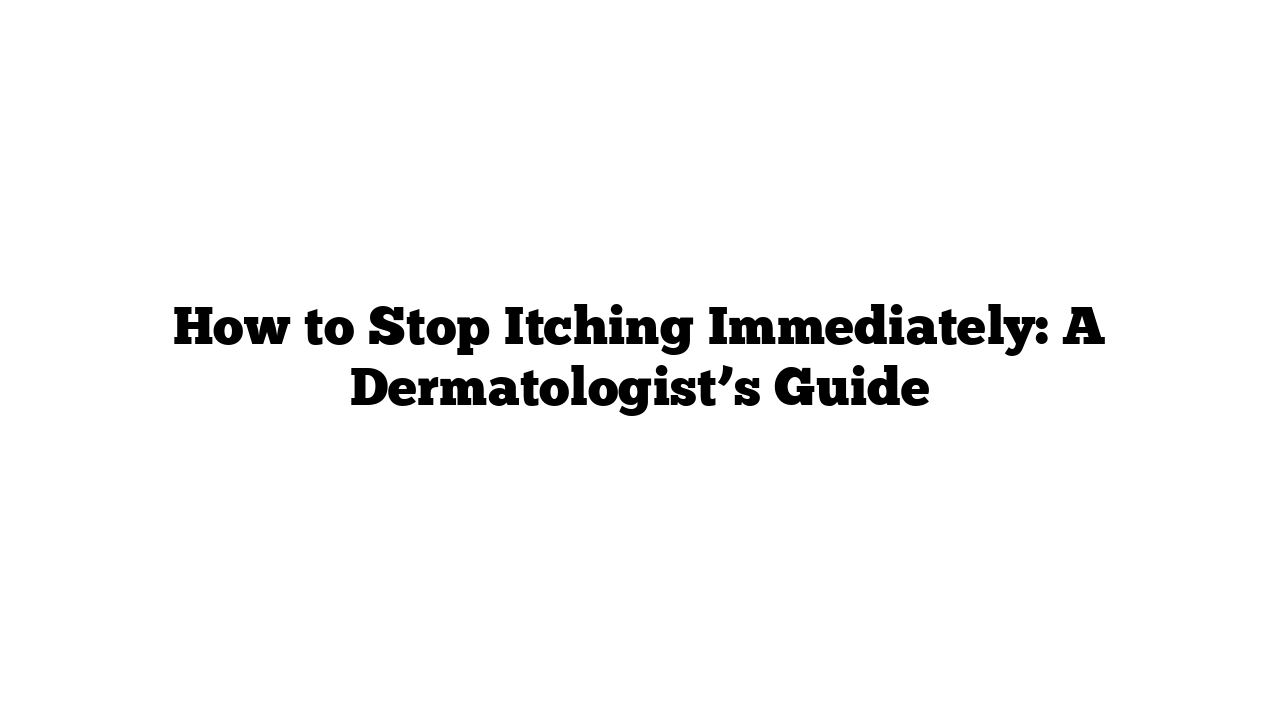Itching is a sensation we’ve all experienced, often driving us to the brink of frustration. Understanding the underlying causes of itching and implementing effective remedies can provide relief and prevent further skin irritation.
This article dives into the common causes of itching, at-home remedies, and advanced dermatological treatments to help you manage this bothersome condition.
Common Causes of Itching
Itching, medically referred to as pruritus, can stem from various causes. Identifying the root cause is crucial to addressing the issue effectively. Below are the most frequent culprits:
1. Dry Skin (Xerosis)
Dry skin is one of the leading causes of itching. It can result from:
- External factors: Low humidity, cold weather.
- Internal triggers: Poor nutrition or genetic conditions like ichthyosis vulgaris.
2. Eczema
Eczema is another prevalent cause, leading to dry, inflamed, and itchy skin. Types include:
- Atopic eczema
- Nodular prurigo
- Discoid eczema
3. Inflammatory Skin Conditions
Conditions like lichen planus present as raised, itchy, purple-to-red papules, typically found on the wrists, lower back, and ankles.
4. Hives (Urticaria)
Hives manifest as raised, itchy welts, often accompanied by swelling of the lips, eyes, or mouth (angioedema).
5. Infections
Insect bites, scabies, and lice are common causes of itching, each with unique diagnostic features.
6. Medication Reactions
Drug-induced rashes, particularly from antibiotics like penicillin, can trigger itching.
7. Systemic Conditions
Underlying health issues, including kidney, liver, or thyroid problems, may present with itching as a symptom.
8. Rare Causes
In rare cases, itching can be an early sign of malignancies or cancers, requiring immediate medical attention.
Managing Itching Effectively
1. Treat the Underlying Cause
The first step in managing itching is addressing its root cause. For instance:
- Urticaria: Treated with regular antihistamines.
- Eczema and psoriasis: Often managed with topical steroids to reduce inflammation.
- Systemic conditions: Resolving kidney, thyroid, or liver issues can alleviate itching symptoms.
2. Use a Good Moisturizer and Cleanser
Dry skin exacerbates itching. Combat it with:
- Emollients or moisturizers to hydrate the skin and maintain its barrier function. Dermatologists often recommend ointments with a high oil-to-water ratio, such as Vaseline, white soft paraffin, or Hydromol.
- Gentle cleansers like QV Gentle Wash or Dermol 500 to avoid harsh soap ingredients that irritate the skin.
- Oat baths to soothe and calm the skin.
Pro Tip: Apply moisturizers immediately after a shower or bath to lock in moisture. Storing them in the fridge can add a cooling effect.
3. Keep Skin Cool and Surroundings Humid
- Use a cold compress, wet cloth, or ice pack to reduce itching.
- Take cool showers instead of hot baths.
- Use a humidifier to maintain optimal room humidity levels, especially during winter.
4. Avoid Skin Irritants
- Opt for loose-fitting clothing made of natural fibers like cotton or silk.
- Avoid synthetic fabrics such as nylon or polyester.
5. Use Anti-Itch Creams
Several over-the-counter creams can provide relief:
- Calamine lotion: Contains zinc and ferrous oxide, offering antiseptic and anti-itch properties.
- Menthol and camphor creams: Cool the skin.
- Lidocaine or pramoxine creams: Effective for neuropathic itching.
- Antihistamine creams: Useful for insect bites or histamine-related itching.
6. Stop Scratching
Scratching can worsen the itch-scratch cycle, leading to more irritation. Try these strategies:
- Pat the skin instead of scratching.
- Trim your nails to prevent further trauma.
- Wear cotton gloves at night to avoid subconscious scratching.
- Practice relaxation techniques like meditation to manage the urge to scratch.
- Replace scratching with alternative behaviors, such as squeezing a stress ball.
7. Seek Professional Help
If itching persists despite home remedies, consult a dermatologist. They can:
- Perform diagnostic tests to identify the cause.
- Offer treatments like phototherapy (light therapy) or prescription medications, including anti-seizure or antidepressant drugs for severe cases.
An Entertaining Note to Remember
Itching can be a nuisance, but understanding its causes and remedies can lead to lasting relief. Whether it’s using a cold compress, choosing the right moisturizer, or addressing systemic health issues, there’s always a solution. If in doubt, don’t hesitate to seek professional advice to regain comfort and control over your skin health.
Frequently Asked Questions (FAQs)
1. What is the best way to stop itching immediately?
Apply a cold compress, use a cooling moisturizer, and avoid scratching to reduce itching quickly.
2. Are antihistamines effective for itching?
Yes, they are particularly effective for histamine-mediated itching, such as hives or insect bites.
3. Can dry skin alone cause itching?
Yes, dry skin is a common cause of itching and can be managed with regular moisturization.
4. What fabrics are best for itchy skin?
Natural fabrics like cotton, silk, or bamboo are best as they minimize irritation.
5. How does a humidifier help with itching?
Humidifiers add moisture to the air, preventing skin from becoming excessively dry.
6. Are topical steroids safe for eczema?
When used as prescribed, topical steroids are safe and effective for managing eczema.
7. Can stress cause itching?
Yes, stress can trigger or worsen itching in certain individuals.
8. How do I know if my itching is serious?
Persistent or generalized itching without an obvious cause may warrant a visit to a dermatologist.
9. What is the itch-scratch cycle?
Scratching increases skin irritation, leading to more itching, perpetuating the cycle.
10. Can home remedies completely cure itching?
While many cases can be managed at home, persistent or severe itching often requires professional evaluation.
Reference websites:
- American Academy of Dermatology
- Mayo Clinic
- Cleveland Clinic
- Visit medicaltimes.io for more health tips.
